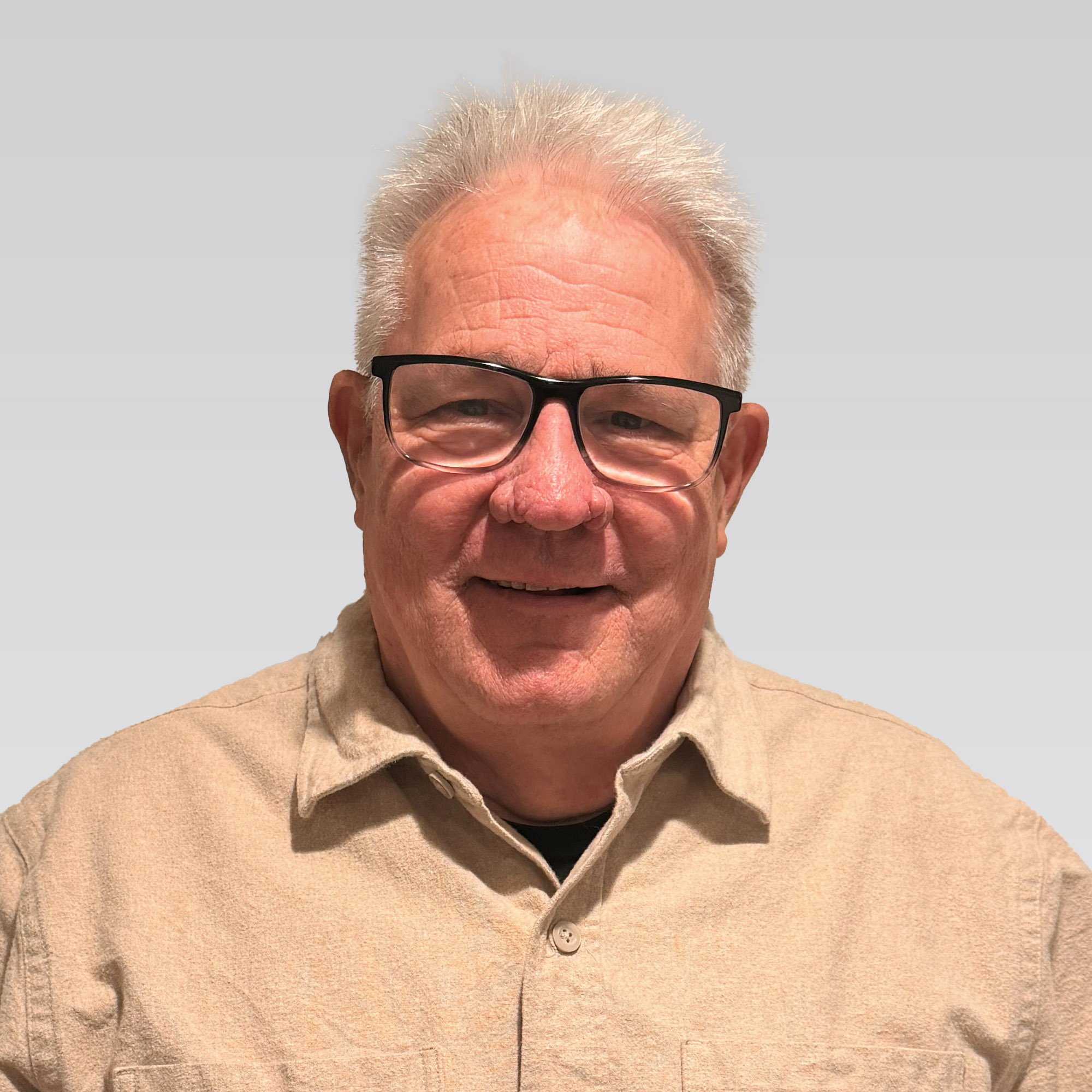
Collaborative care at a psychiatric hospital focuses on personalized treatment for individuals facing major mental health challenges.
A psych hospital, or psychiatric hospital, is a medical facility dedicated to treating individuals with severe mental health conditions. These facilities provide specialized care for major illnesses such as schizophrenia, bipolar disorder, severe depression, and other conditions that can disrupt daily life or pose immediate safety risks.
Psych hospitals serve as safe, structured environments where patients receive around-the-clock care from mental health professionals. These facilities are often critical for stabilizing individuals in crisis, whether they are experiencing acute symptoms, suicidal thoughts, or behaviors that put themselves or others at risk.
Inpatient psychiatric care focuses on more than symptom management. It’s about helping individuals regain a sense of stability and equipping them with the tools they need to continue their recovery once they leave. While psych hospitals are a key part of the mental health care system, they’re just one piece of a larger spectrum of treatment options, which includes outpatient programs like intensive outpatient programs (IOP) and daytime treatment programs.
5 Common Reasons Someone Needs a Psych Hospital
Psych hospitals provide essential care for individuals facing significant mental health challenges. These facilities are designed to stabilize patients in crisis, offering a safe environment where they can receive the support and treatment necessary to begin healing. While not everyone requires inpatient care, certain situations make psych hospitals an indispensable part of the mental health care system. Below are five common reasons someone might need the services of a psychiatric hospital.
Severe Mental Illness Requiring 24/7 Care
Conditions like psychosis, severe depression, or suicidal ideation can make it impossible for individuals to function safely without round-the-clock monitoring. Psych hospitals offer constant supervision and immediate access to psychiatric professionals, ensuring that patients in acute distress are stabilized and supported. This level of care is often the first step in addressing the underlying causes of these conditions.
Behavioral Health Crises
In moments of extreme anxiety, mania, or the inability to manage daily life, psych hospitals provide immediate intervention. These crises can manifest suddenly and may escalate without appropriate care. A psychiatric hospital offers a controlled environment where individuals can de-escalate, receive a proper diagnosis, and start treatment to regain stability.
Transition After a Suicide Attempt
After a suicide attempt, the priority is stabilization and ensuring safety. Psych hospitals play a critical role in providing immediate care, addressing the factors that led to the attempt, and creating a foundation for ongoing mental health support. This environment allows individuals to begin rebuilding in a protected, therapeutic space.
Detox and Mental Health Support
When mental health issues intersect with substance use, psych hospitals can address both simultaneously. Patients undergoing detox often experience heightened emotional distress, making psychiatric support essential. These facilities offer medical detox alongside mental health care, ensuring that patients receive comprehensive treatment for co-occurring disorders.
Court-Ordered Psychiatric Evaluations or Treatment
In some cases, individuals are required by law to undergo psychiatric evaluations or treatment, often as part of legal proceedings. Psych hospitals provide the structured environment to conduct these assessments or deliver mandated care. These stays are critical for ensuring both compliance and the individual’s mental health needs are met.
Psych hospitals are not just places of crisis care—they are stepping stones to a more stable and healthy future. Understanding when and why they are needed can help individuals and families make informed decisions about mental health treatment.
Psych Hospital vs. Outpatient Programs: What’s the Difference?
Mental health treatment is not one-size-fits-all. For individuals struggling with mental illnesses, the level of care needed depends on the severity of symptoms, safety concerns, and personal circumstances. Psych hospitals and outpatient programs, such as Intensive Outpatient Programs (IOP) or daytime treatment, provide two distinct approaches to addressing mental health needs. Understanding the differences can help individuals and families make informed care decisions.
Inpatient Psychiatric Care
Psych hospitals, or inpatient psychiatric facilities, are designed for individuals who require intensive, round-the-clock supervision. These facilities provide a controlled environment where patients can stabilize during a mental health crisis, such as severe depression, psychosis, or suicidal ideation.
Key components of inpatient care include:
- Structured Therapy: Patients participate in group and individual therapy sessions to address underlying mental health conditions.
- Medication Management: Psychiatrists closely monitor medication regimens to ensure effectiveness and manage side effects.
- Crisis Stabilization: The primary goal is to create a safe environment where individuals can regain stability and begin to work toward recovery.
Inpatient psychiatric care is often a short-term solution to address acute symptoms before transitioning to less-intensive treatment options.
Intensive Outpatient Program (IOP) and Daytime Treatment
For those who don’t require 24/7 supervision, IOP and daytime treatment offer a flexible yet structured approach to ongoing mental health care. These programs are designed to provide continued support after a psych hospital stay or as a standalone option for individuals who need more than traditional outpatient therapy.
Key aspects of IOP and daytime treatment include:
- Flexible Scheduling: Patients can attend therapy sessions during the day while maintaining work, school, or family responsibilities.
- Focused Therapy: Sessions may include cognitive behavioral therapy (CBT), trauma-informed care, and skills training tailored to the individual’s needs.
- Community Support: Participants engage with peers facing similar challenges, fostering a sense of connection and shared progress.
Daytime treatment bridges the gap between inpatient care and traditional outpatient services, ensuring individuals receive the support they need without disrupting their daily lives.
Choosing between inpatient care and outpatient programs depends on the individual’s needs. Psych hospitals provide critical care for immediate stabilization, while IOP and daytime treatment offer the tools and structure necessary for sustainable recovery in a more flexible setting. Both play essential roles in the continuum of mental health care.
What Happens During a Stay in a Psych Hospital?
A stay in a psych hospital is often a pivotal moment in someone’s mental health journey. These facilities are designed to provide stability, safety, and support during some of life’s most challenging moments. For individuals experiencing a mental health crisis or requiring intensive care for major mental illnesses, psych hospitals offer a structured environment where healing begins. From the initial assessment to transitioning back to everyday life, the process is tailored to meet each patient’s unique needs and goals.
Assessment and Admission Process
The first step in a psych hospital stay is a thorough assessment to determine the patient’s needs. This includes mental health evaluations, medical history reviews, and discussions about current symptoms. Based on these findings, a personalized treatment plan outlines the therapies, medications, and support systems to guide the patient toward recovery. The admission process ensures that every individual begins their journey with a clear, structured path forward.
Types of Treatment in Psych Hospitals
Treatment in psych hospitals combines medical expertise with therapeutic interventions:
- Medication Management: Psychiatrists oversee the use of medications such as antidepressants, antipsychotics, and mood stabilizers to address chemical imbalances and reduce symptoms.
- Therapy Options: Patients participate in group therapy, individual counseling, and evidence-based approaches like cognitive behavioral therapy (CBT) or trauma-focused care. These sessions help patients process emotions, develop coping skills, and build resilience.
- Crisis Intervention: For individuals experiencing acute symptoms, immediate interventions are implemented to de-escalate the situation and create a sense of safety.
Transitioning Out of a Psych Hospital
The end of a hospital stay doesn’t mark the end of treatment—it’s the beginning of a new phase in recovery. Transition plans often include referrals to Intensive Outpatient Programs (IOP) or daytime treatment to provide continued structure and support. These programs allow individuals to build on their progress in the hospital while reintegrating into their daily lives. Aftercare plans may also involve ongoing therapy, medication management, and connections to community resources to help maintain long-term stability.
Psych hospitals play a foundational role in mental health recovery, offering patients the tools and support they need to move toward a healthier future.
Alternatives to Psych Hospitals for Mental Health Treatment
Psych hospitals serve a critical purpose, but they are not always the only solution for managing mental health challenges. For some, outpatient care provides the right balance of structure and flexibility. Understanding these alternatives allows individuals to make choices that align with their specific needs, helping them find support without the intensity of a hospital stay.
When IOP or Daytime Treatment May Be Enough
Intensive Outpatient Programs (IOP) and daytime treatment offer a middle ground between full hospitalization and traditional outpatient care. These programs are designed for individuals who need a structured environment but don’t require 24/7 supervision.
IOP allows participants to attend therapy sessions weekly while maintaining their work, school, or family responsibilities. This option is ideal for those transitioning from an inpatient setting or individuals whose symptoms, while challenging, are manageable outside of a hospital.
IOP helps patients build coping strategies while staying connected to their daily lives by providing consistent access to therapies like CBT and group counseling. This balance of care and autonomy often leads to meaningful, sustainable progress.
Support Systems Beyond Inpatient Care
For many, recovery is galvanized by the support of family, friends, and community groups. Psych hospitals and outpatient programs often integrate these systems into treatment plans, recognizing the importance of a strong personal network.
Family therapy sessions, peer support groups, and ongoing counseling create opportunities to address relational challenges, foster understanding, and build accountability. These resources are significant in maintaining stability once formal treatment ends, ensuring individuals feel supported in their recovery journey.
While psych hospitals offer critical care in times of crisis, alternatives like IOP and robust support systems provide additional pathways to healing for those ready to take the next step.
How to Find the Right Psych Hospital or IOP in Newport Beach, CA
Choosing the right mental health treatment center can feel overwhelming, but the decision can significantly impact recovery. Whether you’re considering a psych hospital for acute care or an Intensive Outpatient Program (IOP) for ongoing support, knowing what to prioritize will guide you toward the best fit for your needs. With specialized treatment options available in Newport Beach, finding a facility that aligns with your goals can pave the way for meaningful progress.
Why Location Matters
Seeking treatment close to home offers convenience and comfort during a challenging time. Staying local means easier access to family support and a smoother transition to daily routines after treatment. For residents of Newport Beach and the surrounding Orange County area, options like East Point Recovery Centers provide accessible, high-quality care without the stress of distant travel.
What to Look for in a Mental Health Program
Not all mental health facilities are created equal. Look for programs that prioritize evidence-based therapies and employ licensed professionals experienced in treating complex mental health conditions. A strong focus on long-term recovery ensures that treatment goes beyond symptom management, addressing the underlying causes of mental illness. Comprehensive aftercare planning, including IOP and daytime treatment options, is essential to maintaining progress after discharge.
Integrated Care for Major Mental Illnesses and Co-Occurring Disorders
Individuals with dual diagnoses or co-occurring disorders require specialized care that addresses both mental health and substance use challenges. Facilities like East Point Recovery Centers emphasize integrated treatment, combining medication management, therapy, and peer support to create a holistic approach to recovery. This level of care is critical for those navigating conditions like bipolar disorder, anxiety, or depression alongside substance dependency.
Focusing on personalized care, proximity, and professional expertise makes finding the right psych hospital or IOP in Newport Beach a manageable step toward lasting recovery.
4 Misconceptions About Psych Hospitals You Should Know
Psych hospitals are often misunderstood, leading to unnecessary fear or hesitation in seeking care. By addressing these misconceptions, individuals and their families can gain clarity about these facilities’ role in recovery. Whether it’s for short-term stabilization or longer-term support, understanding the reality of psychiatric care can make a significant difference.
“Psych Hospitals Are Just for Severe Cases”
While psych hospitals are equipped to handle acute situations, they also cater to a broader spectrum of mental health challenges. From mood disorders like depression to anxiety that interferes with daily life, these facilities provide personalized care plans for each individual. This diversity ensures that even those with less severe but persistent symptoms can access the support they need.
“You’ll Be Locked Away”
The idea of confinement often overshadows the truth about psych hospitals. In reality, these centers foster healing through open communication, group activities, and evidence-based therapies. Patients actively participate in their recovery, working alongside compassionate professionals in a collaborative environment to encourage growth and stability.
“Outpatient Care Isn’t as Effective”
IOP and daytime treatment programs are highly effective alternatives to inpatient care for many individuals. These options allow patients to maintain their routines, stay connected to their support systems, and apply therapeutic techniques in real-time. Facilities like East Point Recovery Centers specialize in offering flexible treatment models that are both practical and impactful for sustained mental health improvement.
“Once You Go to a Psych Hospital, You’ll Never Leave”
Long-term stays are not the standard for most patients. Psychiatric hospitals aim to stabilize individuals and transition them into the appropriate level of care, such as outpatient or IOP programs. Personalized care plans ensure that every step, from admission to discharge, is aligned with the patient’s unique recovery goals, creating a clear path forward.
By addressing these common myths, it becomes clear that psych hospitals are not just about crisis management—they are a resource for anyone seeking to regain control over their mental health.
When Is a Psych Hospital the Right Choice?
Deciding to seek care at a psych hospital can feel overwhelming, but understanding the signs that indicate the need for inpatient treatment can make that decision clearer. Psych hospitals are designed for individuals experiencing severe mental health symptoms that require immediate, structured support. They offer a safe space for stabilization, medical monitoring, and therapeutic intervention.
For some, the decision might come after facing a significant safety risk, such as thoughts of self-harm or harm to others. For others, it might be the inability to function in daily life due to severe depression, anxiety, or psychosis. Regardless of the situation, early intervention can prevent escalation and set the foundation for recovery.
Starting with a professional assessment at East Point Recovery Centers can help determine whether inpatient care, IOP, or daytime treatment is the most effective option. Tailored recommendations ensure that each individual receives the level of care they need to begin their journey toward stability and long-term mental wellness.
Take the First Step Toward Stability Today
Seeking help for mental health challenges is a courageous decision that can set the foundation for long-term recovery. Redeemed Mental Health in Newport Beach offers a trusted environment where individuals can find support tailored to their needs. Whether through intensive outpatient programs or daytime treatment, our team is committed to helping individuals regain control and build a path toward healing.
Our Newport Beach location specializes in addressing major mental illnesses and co-occurring disorders, providing evidence-based care in a compassionate setting. If you or someone you care about is facing a mental health crisis, don’t wait to reach out.
Contact Redeemed Mental Health today to explore our IOP treatment programs in Newport Beach, CA, and take the first step toward recovery and a brighter future.

























